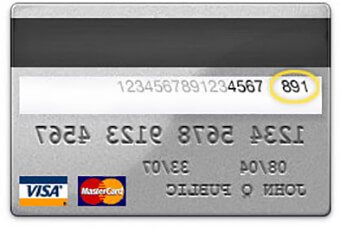What are AVS, CVV, CCV and CVV2, and What Do All of the Abbreviations Mean?

AVS, CVV, CCV and CVV2 verifications are tools to manage risk and fraud. They are designed to help manage fraud exposure. And with so many abbreviations, what do they all really mean anyways?
Address Verification Service (AVS) – a system used to verify the address of a person claiming to own a credit card. The system checks the billing address of the credit card provided at the time of the transaction with the address on file with the credit card company. AVS is supported by Visa, Mastercard and American Express. As a heads up, cardholders with a bank that doesn’t support AVS might receive an error when performing a transaction online due to the lack of data. In addition, only the street number and/or unit number is required, not the full address.
Card Verification Value (CVV) – on the credit or debit card is a 3 digit number for Visa and MasterCard, and 4 digits for American Express. The CVV number is located on the back of the card for Visa and MC, and the front for Amex. When the customer provides the merchant with the CVV code, this is proof that the customer actually has the credit or debit card in their hands. This helps to reduce fraud, and keeps the merchant and the customer safe. CVV are also known as CSC numbers (“Card Security Code”) as well as CVV2 numbers. Note: CVV numbers are not your card’s secret PIN (personal identification number), and you should never ever enter your PIN number online when asked to provide your CVV.
Contact us today for all of your payment processing solutions.

